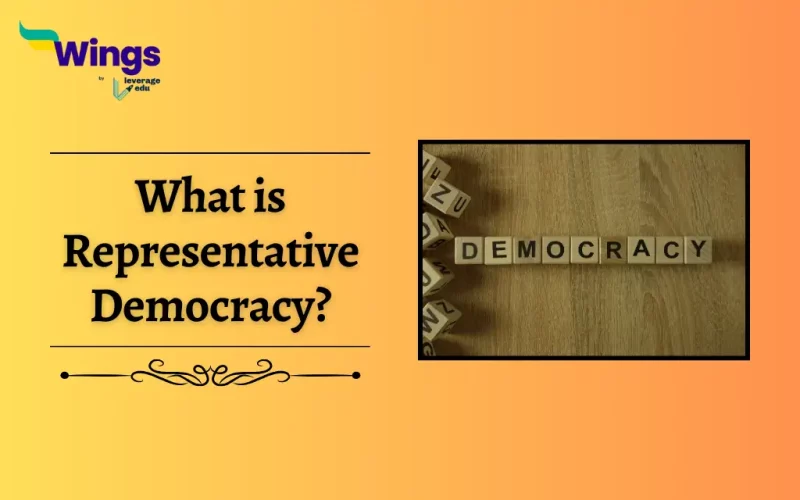Representative Democracy refers to the form of Government where citizens elect individuals to represent them in legislative bodies like Parliament or Congress. The elected representatives make decisions on behalf of citizens. Furthermore, they make important policy decisions for citizens and the nation. Additionally, this system allows citizens to participate in the political process indirectly, through their chosen representatives, rather than directly voting on every issue.
Table of Contents
Evolution of Representative Democracy
This form of government has evolved over centuries and many countries have contributed to its development. Moreover, many political stalwarts and policymakers have struggled to popularise this form of Democracy. Here is a general overview of the historical progression of this form of Democracy:
- This concept can be traced back to Athens in Ancient Greece. In Athens, citizens participated in decision-making through an Assembly. However, this form of democracy was limited to a relatively small segment of the population.
- Thereafter, assemblies of medieval Europe also laid the foundation of a new form of democracy. During this time, certain regions had assemblies where representatives from different classes or regions would gather to advise rulers or monarchs on matters of governance.
- Furthermore, the Magna Carta of 1215 was a step forward in limiting the power of the monarchy. In addition, it also focuses on establishing rights for subjects. With the Magna Carta, the English Parliament, which evolved, began as a way for nobles and commoners to have a voice in governance through their representatives.
- Then came the Age of Enlightenment in the 17th and 18th centuries. In this era, ideas of individualism, personal freedom, equality, and reason gained prominence. Thinkers like John Locke and Montesquieu contributed to the development of political theories that supported representative government and the separation of powers.
- Simultaneously, in the 18th century, the world witnessed the American Revolution and French Revolution. The liberal ideologies of the American Revolution led to the establishment of Representative Democracy in the USA. Furthermore, the French Revolution led to the establishment of democratic principles, though the path was more turbulent.
- Thereafter, this form of government was established in the UK with the Parliamentary System and in the USA with the Presidential system.
- As both the UK and the USA were thriving on the ideals of new forms of government, other countries followed suit. Over centuries, the representative form of government evolved and was adopted by most countries.
Also Read: What is Local Self Government? Definition, Functions, Importance
Examples of this type of Democracy
Numerous countries around the world practice this form of Democracy in different ways. Here are a few examples:
- United States of America
- India
- United Kingdom
- Germany
- Canada
- France
- Japan
- Australia
- Brazil
- South Africa
Also Read: What is Federalism?
Pros and Cons of Representative Democracy
Moreover, here are the pros and cons of a Representative Democracy:
- A Representative Democracy is an efficient system of elections. One single representative that has been chosen by the people can elect the government.
- It increases and encourages participation as each of the citizens of the state may feel that they have a say in the process of the election.
- It can be unreliable as it is not always necessary that the elected representatives by the people do not always the consensus of the people
- It can get inefficient as a representative democracy can convert into bureaucracy that is very slow in taking action.
Results
#1. Which country follows Representative Democracy?
#2. When was Magna Carta introduced in English Parliament?
#3. Who makes policies in a Represetative Government?
Related Blogs
Lastly, we hope you liked our blog and gained an understanding of Representative Democracy. Moreover, you may even read more blogs and empower yourself with knowledge regarding Civics and Polity!
 One app for all your study abroad needs
One app for all your study abroad needs
















